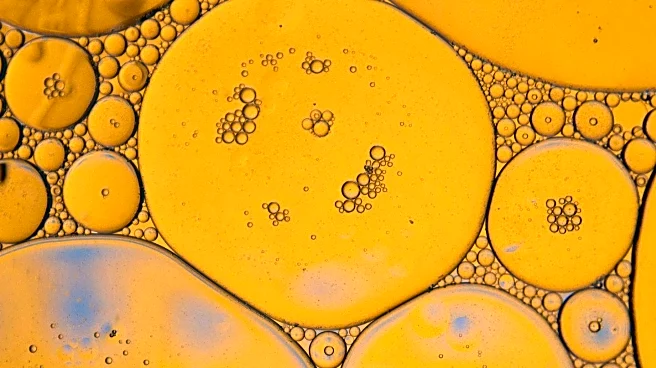What is the story about?
What's Happening?
A recent study has identified the role of Kupffer cells in promoting neutrophil extracellular trap (NET) formation and liver metastasis in breast cancer. The research found that NETs are abundantly present in liver metastases, supporting tumor progression. Kupffer cells, a type of liver macrophage, were shown to induce NETosis through the expression of DMBT1, a protein that promotes NET formation. The study used various models, including human breast cancer samples and murine models, to demonstrate the correlation between NETs and liver metastasis. The findings suggest that targeting NET formation could be a potential therapeutic strategy to prevent liver metastasis in breast cancer.
Why It's Important?
This study is crucial as it provides insights into the mechanisms of liver metastasis in breast cancer, highlighting the role of the liver microenvironment in tumor progression. Understanding the interaction between Kupffer cells and NETs could lead to new therapeutic approaches aimed at disrupting these processes, potentially reducing the incidence of liver metastasis. This research underscores the importance of the tumor microenvironment in cancer progression and opens avenues for targeted therapies that could improve patient outcomes.
What's Next?
Future research will focus on developing therapies that target NET formation and Kupffer cell activity to prevent liver metastasis. Clinical trials may be initiated to test the efficacy of NET inhibitors in reducing metastatic spread. Additionally, further studies are needed to explore the role of other immune cells in the liver microenvironment and their contribution to cancer progression.
Beyond the Headlines
The study highlights the complex interplay between immune cells and cancer cells, emphasizing the need for a holistic approach to cancer treatment that considers the tumor microenvironment. It also raises ethical considerations regarding the manipulation of immune responses in cancer therapy.














